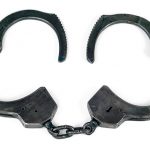Have I Been Charged With the Correct Criminal Offence?

There is a difference between a person breaking the law and being charged with the correct criminal offence.
If you have done the wrong thing, you shouldn’t assume that the police have charged you with the appropriate offence without first seeking legal advice.
Here’s what you need to know about appropriate charging.
Choice of Charge
Once a person is charged with an offence, prosecutors will decide whether the charges selected adequately and appropriately address the criminality alleged.
New South Wales prosecution guidelines make it clear that prosecutors must consider whether:
- Substantive charges reflect the offences actually committed.
- The charges enable enable the matter to be dealt with fairly and expeditiously according to law.
- The indictment is overloaded or filled with excessive charges so as to make it unduly complex or lengthy.
- If there is one or more co-accused, the desirability of consistent charged.
The guidelines also make it explicit that charges should not be selected merely for the purposes of providing scope for charge resolution at a later stage.
Charge Negotiations
Charge negotiations – sometimes known as ‘plea negotiations’ – involve correspondences and communications between the defence and prosecution, for the purposes of working out an appropriate and mutually satisfactory agreement about criminal charges.
The basis of these negotiations is often a document called ‘representations‘ which is prepared by the defence lawyer and sent to the prosecution for consideration.
This document can request withdrawal of all of the charges, or the downgrading of serious charges to less serious one or ones.
Prosecution guidelines set out the factors prosecutors must consider before deciding to withdraw or downgrade criminal charges as as part of negotiations. These include:
- Whether he alternative charge adequately reflects the seriousness of the offence and will allow for sufficient punishment to be given;
- If the police evidence is weak;
- Whether the saving of cost and time outweighs the likelihood of conviction;
- Whether it will save a witness from testifying, especially a vulnerable one and/or the witness has expressed a wish not to testify.
Overcharging
The term ‘overcharging’ refers to police or prosecutors unnecessarily filing more charges than are justified by the offence committed. Overcharging is not allowed under NSW prosecution guidelines.
Two different types of overcharging can occur: discrete event overcharging and inflated charging.
Discrete event overcharging is where offending occurs as a result of continuous conduct but is charged as a series of discrete offences rather than a “course of conduct” offence.
For example, Person A follows Person B on foot to their home in a menacing manner before running away, then begins sending six threatening text messages over the following three weeks. Discrete event overcharging would involve charging Person A with an offence of common assault under section 61 of the Crimes Act 1900 (NSW) and six counts of using a carriage service to make a death threat under section 474.15(1) of the Criminal Code Act 1995 (NSW), rather than a single charge of stalking under section 13 of the Crimes (Domestic and Personal Violence) Act 2007 (NSW).
Inflated charging involves speculative charging for offences that are more serious than the available evidence is likely to support.
For example, Person A and Person B get into an argument in public over money and Person A punches Person B repeatedly causing serious bruising before a police officer notices and intervenes. Inflated charging would be the police officer charging Person A with attempted murder under section 27 of the Crimes Act 1900 (NSW), rather than the more appropriate charge of assault occasioning actual bodily harm under section 59 of the Crimes Act 1900 (NSW).
The risk of overcharging is one of the many reasons those who are facing court over criminal allegations should promptly obtain expert legal advice from an experienced, specialist criminal defence law firm.
Receive all of our articles weekly
Related Articles
RELATED LEGISLATION
- Section 59 Crimes Act 1900 | Assault Occasioning Actual Bodily Harm
- Section 474.15(1) Criminal Code Act 1995 | Use Carriage Service to Make a Death Threat
- Section 13 Crimes (Domestic and Personal Violence) Act 2007 | The Offence of Stalking or Intimidation
- Section 27 Crimes Act 1900 | Acts Done to the Person with Intent to Murder






